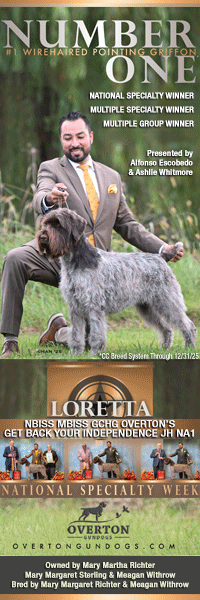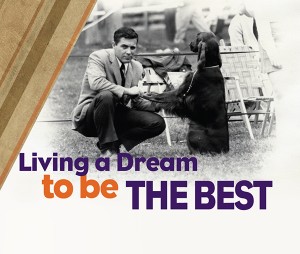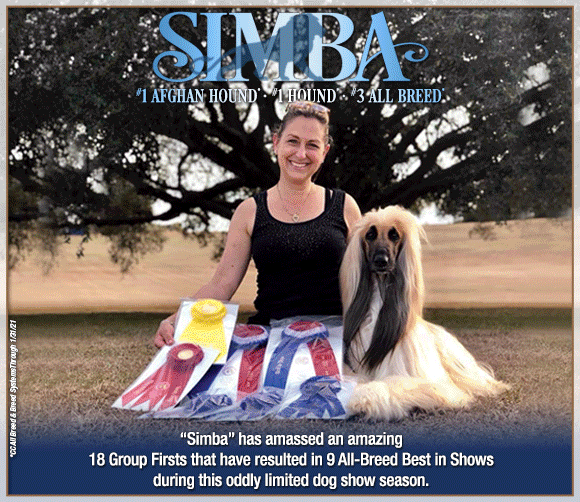Living a Dream to be the Best
Click here to read the complete article
If you’ve seen the movie “Best in Show,” you may remember the handler who was really showing himself—not his Shih Tzu. Iconic handler George Alston would have no patience with this type of handler, and probably doesn’t think much of being called an ‘icon.’ “When people say ‘I went Best in Show’ that’s b.s.,” he says. “You didn’t—your dog did!” Alston accomplished much in his handling career, but he’s emphatic that there are only two things he ever won himself. In a way, they are the bookends of his career: Best Junior at Westminster in 1954 when he was 14 and his election to the Professional Handler Association Hall of Fame in 2012.
George Alston grew up on a farm in what is now Reston, Virginia where his family raised purebred Boxers. From birth, he only had sight in his right eye. “My father wanted to keep me out of contact sports, so he introduced me to showing dogs,” Alston recalls. At eight, he showed his first dog, a neighbor’s Standard Poodle; six years later, he won juniors at Westminster with his family’s house dog, a Boxer named Boomer. Ch. Barmere’s Talisman had been purchased from Barmere Kennels in California and was the first champion offspring of his illustrious sire, Ch. Bang Away Of Sirrah Crest.
At age 12, Alston began to work for professional handlers after school and on weekends. He was a crate boy for Nate Levine, Bang Away’s handler—“as a kid, I even got to groom him,” he says. He worked for Jane Forsyth (then Jane Kamp) where he was allowed to groom another of Bang Away’s offspring, Ch Barrage Of Quality Hill. At Foley’s benched shows, the young Alston was a ring runner. “We’d get paid $5 plus a catalog to run back and forth to the benching area to let people know their dogs were due in the ring,” he says. “Then, I’d sell the catalog for 50 cents or a buck—it paid my entry fees in juniors.”
Scholarships – or Learning to Make a Career in Dogs?
When it came time for Alston to decide his future—college or a career in dogs—his father may have regretted facilitating his son’s introduction to the fancy. “My father disowned me,” Alston says. “I had merit scholarships and swimming scholarships to Yale, Harvard, Cornell, the University of Pennsylvania, and Indiana University—I turned them all down.” Instead, Alston went to work for Lina Basquette at a salary of $25 per week.
Click here to read the complete article
Short URL: https://caninechronicle.com/?p=177750
Comments are closed













